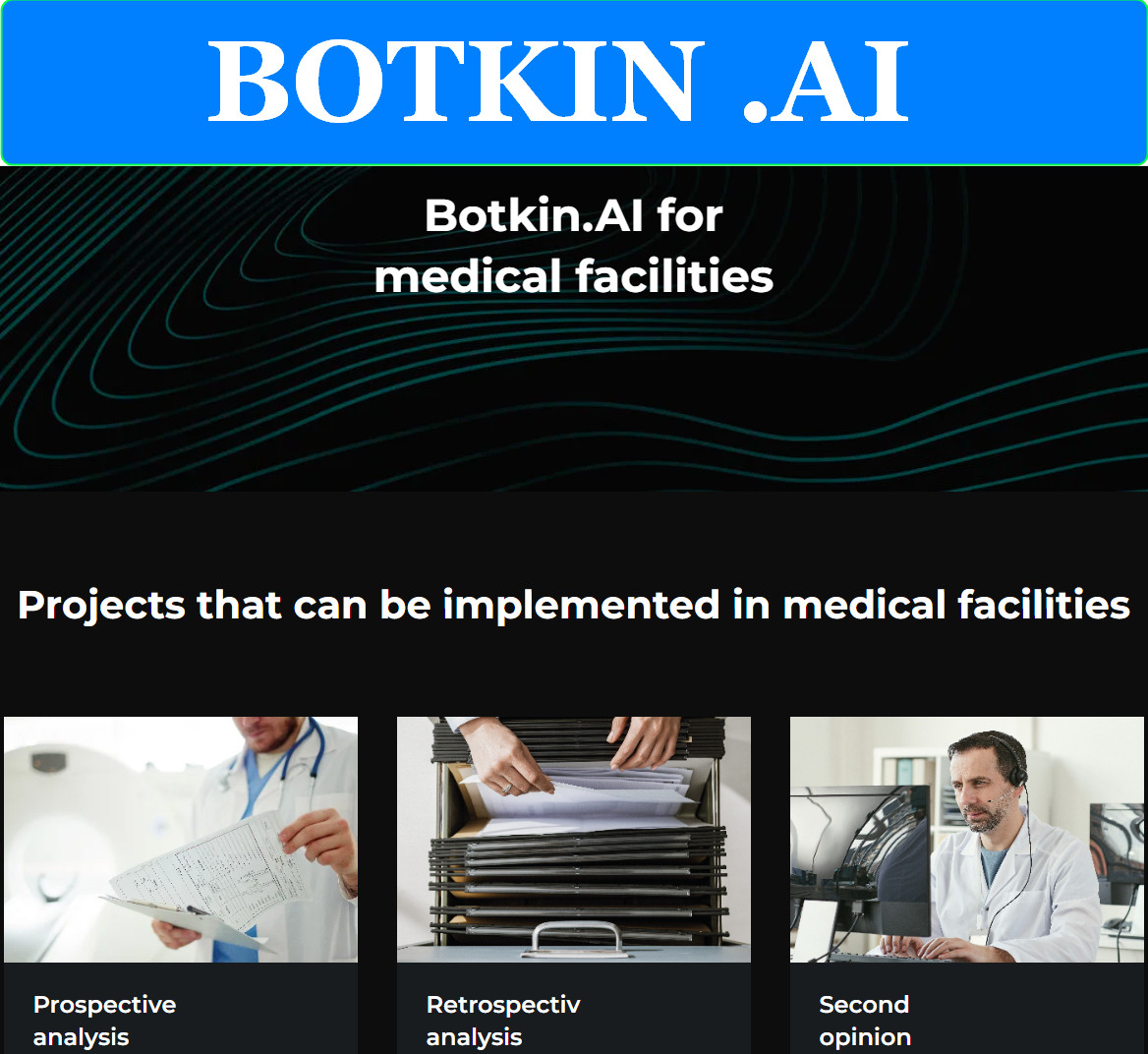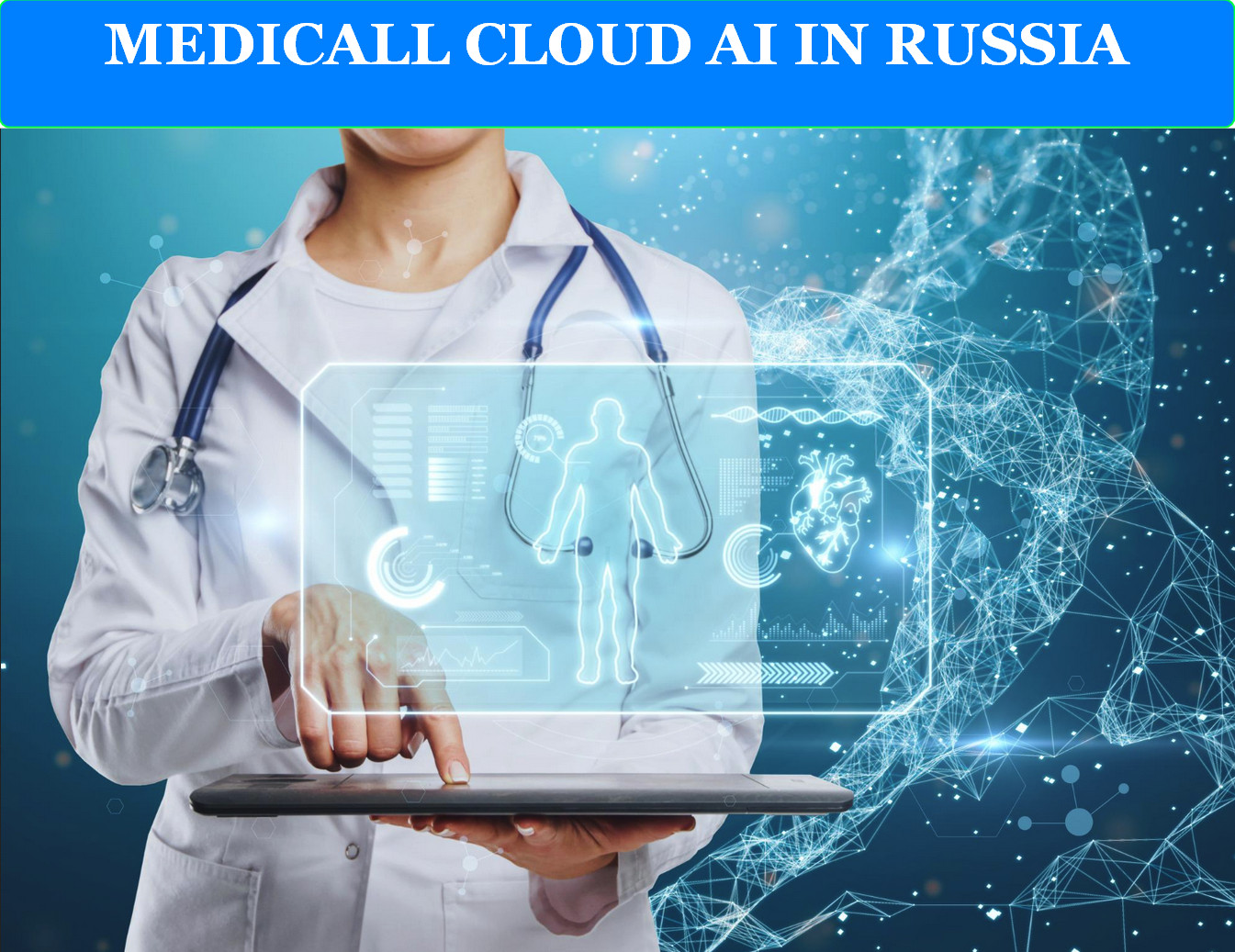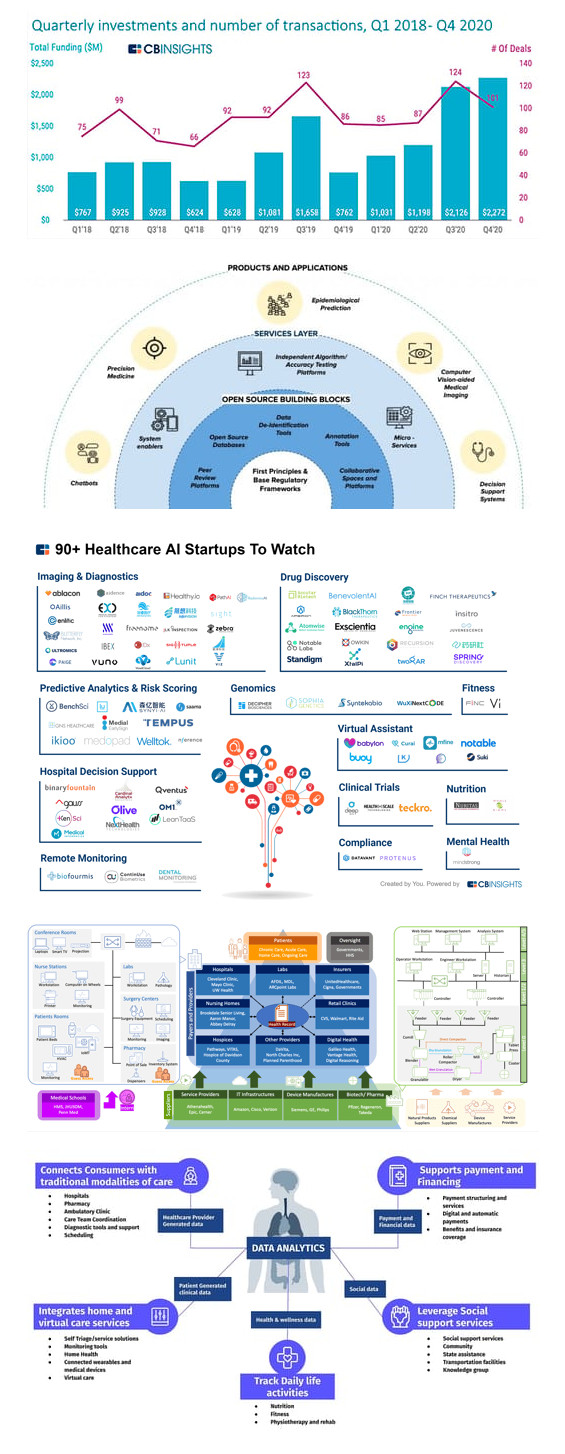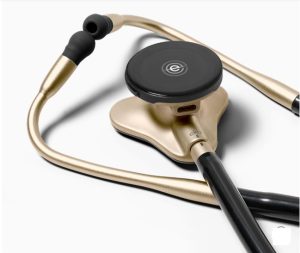MEDICAL CLOUD AI IN RUSSIA: REVOLUTIONIZING HEALTHCARE THROUGH ADVANCED TECHNOLOGY
Russia is rapidly advancing in the implementation of artificial intelligence and cloud computing technologies in healthcare, creating a robust ecosystem of innovative medical solutions.
The Russian Federation has emerged as a significant player in the global medical cloud AI landscape, with government initiatives, leading technology companies, and innovative startups collaborating to transform healthcare delivery through artificial intelligence and cloud computing. As of 2024, Russia has positioned itself at the forefront of medical AI innovation, with over 65 different AI systems operating in the country’s healthcare sector.
THE CURRENT STATE OF MEDICAL CLOUD AI IN RUSSIA
Russia’s healthcare system is undergoing a dramatic digital transformation, driven by the convergence of artificial intelligence, cloud computing, and big data analytics. According to Webiomed, by the end of 2024, there were 65 different AI systems for medicine and healthcare operating across the country. This represents a significant advancement in the nation’s digital health infrastructure.
Webiomed’s predictive analytics platform represents the cutting edge of Russian medical AI technology.
The Russian government has made substantial investments in healthcare digitization, with President Vladimir Putin tasking the Health Ministry with focusing on digital transformation and technological solutions, particularly for primary healthcare services. This strategic focus has catalyzed the development of a comprehensive medical cloud AI ecosystem.
MARKET GROWTH AND INVESTMENT TRENDS
The Russian healthcare cloud infrastructure market generated USD 1,691.0 million in revenue in 2022 and is expected to reach USD 5,833.0 million by 2030, according to Grand View Research. Similarly, the telehealth market in Russia generated USD 2,302.0 million in 2023 and is projected to reach USD 8,236.1 million by 2030.
LEADING RUSSIAN MEDICAL CLOUD AI PLATFORMS
WEBIOMED: PIONEERING PREDICTIVE ANALYTICS
Webiomed stands as Russia’s flagship medical AI company, developing the first AI-based Russian software in healthcare officially registered as a medical device. The platform specializes in predictive analytics and risk assessment, automatically analyzing anonymized medical data to predict disease development and complications.
Webiomed has established itself as a leading Russian startup in the artificial intelligence healthcare sector.
Key features of the Webiomed platform include:
- Clinical Decision Support Systems (CDSS): Automatic analysis of electronic health records using AI
- Risk Stratification: Automatic identification of high-risk patients
- Predictive Modeling: Machine learning models for disease progression forecasting
- Population Health Management: Comprehensive analytics for healthcare administrators
The platform serves multiple stakeholders including healthcare managers, clinicians, pharmaceutical companies, research organizations, and insurance companies, each receiving tailored insights relevant to their specific needs.
BOTKIN.AI: REVOLUTIONIZING MEDICAL IMAGING
Botkin.AI represents another cornerstone of Russian medical AI innovation, focusing specifically on medical image analysis and radiology. As the first AI-based platform in Russia registered as a medical device, Botkin.AI has achieved significant milestones in automated medical imaging.

Botkin.AI’s advanced technology platform for medical image analysis and diagnosis.
The platform’s capabilities include:
- Automated Image Analysis: AI-powered analysis of CT scans, X-rays, and other medical images
- Pathology Detection: Advanced algorithms for identifying lung cancer, COVID-19, and other conditions
- Remote Diagnostics: Support for telemedicine and remote radiology services
- Quality Assurance: Automated verification of radiological conclusions
Botkin.AI has been successfully integrated with Moscow’s Unified Radiological Information System, enabling automated analysis of CT studies for lung cancer detection across the capital’s healthcare network.
GOVERNMENT INITIATIVES AND NATIONAL PROGRAMS
RUSSIAN HEALTH MINISTRY’S AI PLATFORM
In November 2022, the Russian Health Ministry launched a comprehensive healthcare AI platform designed to create a digital environment for interaction between AI solution developers and the medical community. This platform serves as a central hub where:
- Medical professionals formulate clinical challenges requiring AI solutions
- Developers access anonymized datasets for AI model training
- Clinical tasks are prioritized based on healthcare system needs
- Collaborative research projects are initiated
NATIONAL AI STANDARDS IMPLEMENTATION
Russia has developed comprehensive state standards covering AI use in healthcare, which took effect on January 1, 2025. These standards address:
- Safety Requirements: Ensuring AI systems meet medical device safety criteria
- Efficacy Standards: Validation requirements for AI-based medical decisions
- Data Protection: Safeguarding patient privacy in AI applications
- Integration Protocols: Standardized approaches for AI implementation in healthcare facilities
MAJOR TECHNOLOGY COMPANIES AND ECOSYSTEMS
SBERBANK’S MEDICAL AI ECOSYSTEM
Sberbank, Russia’s largest bank, has partnered with Skoltech to create one of the country’s most comprehensive medical AI ecosystems. The SberMedAI initiative encompasses:
- 50 AI Models: Diverse solutions for various medical applications
- Multi-Regional Implementation: Healthcare institutions across 16 Russian regions
- Cloud Infrastructure: Scalable computing resources for medical AI applications
- Research Collaboration: Joint development with academic institutions
YANDEX CLOUD HEALTHCARE SOLUTIONS
Yandex Cloud provides comprehensive cloud infrastructure specifically designed for healthcare applications, offering:
- Regulatory Compliance: Meeting Federal Law 152-FZ requirements for data protection
- Secure Data Processing: UZ-1 security level certification for sensitive medical data
- Scalable Architecture: Flexible cloud resources for growing healthcare organizations
- AI/ML Services: Pre-configured machine learning tools for medical applications
INNOVATIVE APPLICATIONS AND USE CASES
COVID-19 RESPONSE AND MANAGEMENT
Russian medical AI platforms played a crucial role during the COVID-19 pandemic, demonstrating the practical value of cloud-based AI solutions:
- Automated COVID-19 Detection: Botkin.AI processed thousands of chest CT scans for COVID-19 diagnosis
- Epidemic Modeling: Machine learning models predicted pandemic spread in selected Russian regions
- Resource Optimization: AI-driven allocation of medical resources and personnel
- Contact Tracing: Automated systems for tracking disease transmission
.
CARDIOVASCULAR DISEASE PREVENTION
One of the most successful applications of Russian medical cloud AI has been in cardiovascular disease prediction and prevention:
- Risk Assessment Models: Machine learning algorithms analyze multiple risk factors to predict cardiovascular events
- Population Screening: Large-scale analysis of electronic health records to identify high-risk patients
- Personalized Prevention: Tailored recommendations based on individual patient profiles
- Clinical Decision Support: Real-time guidance for healthcare providers
PREDICTIVE ANALYTICS IN MATERNAL HEALTH
Russian AI systems have shown remarkable success in predicting preeclampsia and other pregnancy complications:
- Early Detection: AI models identify risk factors in the first trimester
- Resource Planning: Predictive analytics help hospitals prepare for high-risk deliveries
- Improved Outcomes: Earlier intervention leads to better maternal and fetal health outcomes
CHALLENGES AND REGULATORY FRAMEWORK
DATA PRIVACY AND SECURITY
Russia has implemented strict data protection regulations that medical AI platforms must navigate:
- Federal Law 152-FZ: Comprehensive personal data protection requirements
- Medical Data Anonymization: Strict protocols for de-identifying patient information
- Cross-Border Data Transfer: Regulations governing international data sharing
- Audit and Compliance: Regular assessments of AI system security measures
INTEGRATION WITH LEGACY SYSTEMS
Many Russian healthcare facilities operate with legacy IT infrastructure, creating challenges for AI implementation:
- Interoperability Issues: Ensuring AI systems work with existing hospital information systems
- Staff Training: Educating healthcare workers on AI tool usage
- Change Management: Overcoming resistance to new technology adoption
- Cost Considerations: Balancing AI investment with other healthcare priorities
INTERNATIONAL COLLABORATION AND KNOWLEDGE EXCHANGE
Despite geopolitical tensions, Russian medical AI continues to engage with international partners in specific areas:
ACADEMIC PARTNERSHIPS
- Research Collaboration: Joint studies with international medical institutions
- Scientific Publications: Russian researchers publish in global medical AI journals
- Conference Participation: Attendance at international medical AI conferences
- Knowledge Sharing: Exchange of best practices and technical expertise
TECHNOLOGY TRANSFER
- Open Source Contributions: Some Russian AI algorithms are made available internationally
- Standards Development: Participation in global medical AI standardization efforts
- Cross-Border Healthcare: AI solutions for international medical consultations
REGIONAL IMPLEMENTATION AND SUCCESS STORIES
MOSCOW’S DIGITAL HEALTH INITIATIVE
Moscow has become a testing ground for advanced medical AI applications:
- Unified Radiological Information System: Citywide integration of AI-powered imaging analysis
- Telemedicine Network: Cloud-based platforms connecting specialists across the city
- Emergency Response: AI-assisted dispatch and resource allocation for medical emergencies
- Population Health Monitoring: Large-scale analytics for public health management
YAMALO-NENETS AUTONOMOUS OKRUG PILOT PROJECT
The Yamalo-Nenets region has served as a successful pilot for AI implementation in remote areas:
- Remote Diagnostics: AI-powered analysis of medical images in underserved areas
- Specialist Consultations: Cloud-based platforms connecting remote patients with urban specialists
- Resource Optimization: AI-driven allocation of limited medical resources
- Training Programs: Education initiatives for local healthcare workers
FUTURE PROSPECTS AND TECHNOLOGICAL ROADMAP
EMERGING TECHNOLOGIES
Russian medical AI is expanding into new technological frontiers:
- Large Language Models: Development of medical-specific language models for clinical documentation
- Computer Vision: Advanced image analysis for multiple medical specialties
- IoT Integration: Connecting medical devices with cloud-based AI analytics
- Blockchain: Secure and transparent medical data management
- 5G Networks: High-speed connectivity for real-time AI applications
QUANTUM COMPUTING APPLICATIONS
Russia’s investment in quantum computing research is beginning to influence medical AI development:
- Drug Discovery: Quantum algorithms for molecular modeling and pharmaceutical research
- Complex Optimization: Solving resource allocation problems in large healthcare systems
- Advanced Analytics: Processing vast datasets beyond classical computing capabilities
PERSONALIZED MEDICINE WITH MEDICAL CLOUD AI IN RUSSIA

The future of Russian medical cloud AI focuses heavily on personalization:
- Genomic Analysis: AI-powered interpretation of genetic data for treatment planning
- Precision Diagnostics: Tailored diagnostic approaches based on individual patient characteristics
- Therapeutic Optimization: AI-assisted selection of optimal treatment protocols
- Lifestyle Medicine: Integration of wearable device data with clinical AI systems
ECONOMIC IMPACT AND MARKET DYNAMICS
INVESTMENT AND FUNDING
The Russian medical AI sector has attracted significant investment:
- Government Funding: Substantial state investment in healthcare digitization
- Private Investment: Venture capital and corporate funding for AI startups
- International Partnerships: Limited but strategic collaborations with global partners
- Research Grants: Academic funding for medical AI research projects
JOB MARKET AND SKILLS DEVELOPMENT
The growth of medical cloud AI has created new employment opportunities:
- AI Engineers: Specialists in medical AI algorithm development
- Data Scientists: Experts in healthcare data analysis and modeling
- Clinical Informaticians: Professionals bridging medicine and technology
- Regulatory Specialists: Experts in medical device compliance and approval
COST-BENEFIT ANALYSIS
Russian healthcare institutions are realizing significant benefits from AI implementation:
- Diagnostic Efficiency: Reduced time for image analysis and diagnosis
- Error Reduction: Decreased medical errors through AI-assisted decision making
- Resource Optimization: More efficient use of medical personnel and equipment
- Preventive Care: Early disease detection leading to reduced treatment costs
Cloud computing infrastructure provides the foundation for scalable medical AI applications.
CHALLENGES AND LIMITATIONS

TECHNICAL CHALLENGES
- Data Quality: Ensuring high-quality, standardized medical data for AI training
- Algorithm Bias: Addressing potential biases in AI decision-making processes
- Interoperability: Achieving seamless integration between different AI systems
- Scalability: Managing increased computational demands as AI adoption grows
REGULATORY AND ETHICAL CONSIDERATIONS
- Patient Consent: Ensuring informed consent for AI-assisted medical care
- Liability Issues: Determining responsibility when AI systems make incorrect decisions
- Transparency: Maintaining explainable AI in critical medical applications
- Equity: Ensuring AI benefits reach all segments of the population
INTERNATIONAL COOPERATION AND FUTURE OUTLOOK IN MEDICAL CLOUD AI IN RUSSIA
Despite current geopolitical challenges, Russia continues to seek opportunities for international collaboration in medical AI:
Global Impact
Russian medical AI innovations have the potential to contribute to global healthcare improvements:
- Algorithm Sharing: Open-source medical AI algorithms for global use
- Best Practices: Sharing implementation experiences with other countries
- Research Collaboration: Joint studies on medical AI effectiveness and safety
- Technology Transfer: Licensing Russian AI technologies for international use
CONCLUSION
Russia has established itself as a significant player in the global medical cloud AI landscape, with a comprehensive ecosystem encompassing government initiatives, leading technology companies, innovative startups, and world-class research institutions. The country’s strategic focus on healthcare digitization, combined with substantial investments in AI research and development, has created a robust foundation for continued growth and innovation.
The success stories of Webiomed, Botkin.AI, and other Russian medical AI platforms demonstrate the practical benefits of cloud-based artificial intelligence in healthcare delivery. From predictive analytics that prevent disease progression to automated imaging analysis that improves diagnostic accuracy, Russian medical cloud AI is delivering tangible improvements in patient care and healthcare system efficiency.
Looking ahead, Russia’s medical cloud AI sector is poised for continued expansion, driven by emerging technologies such as large language models, quantum computing, and advanced computer vision. While challenges remain in areas such as regulatory compliance, international cooperation, and technology integration, the foundation for future growth is solid.
As the global healthcare industry continues to embrace digital transformation, Russia’s contributions to medical cloud AI will likely play an increasingly important role in shaping the future of healthcare delivery worldwide. The country’s commitment to innovation, combined with its technical expertise and comprehensive approach to healthcare digitization, positions it well to continue leading in this critical field.
The Russian experience in medical cloud AI offers valuable lessons for other countries seeking to implement similar technologies, demonstrating both the potential benefits and the practical challenges of large-scale healthcare AI deployment. As we move into 2025 and beyond, Russia’s medical cloud AI ecosystem will undoubtedly continue to evolve, contributing to global advances in healthcare technology and patient care.

